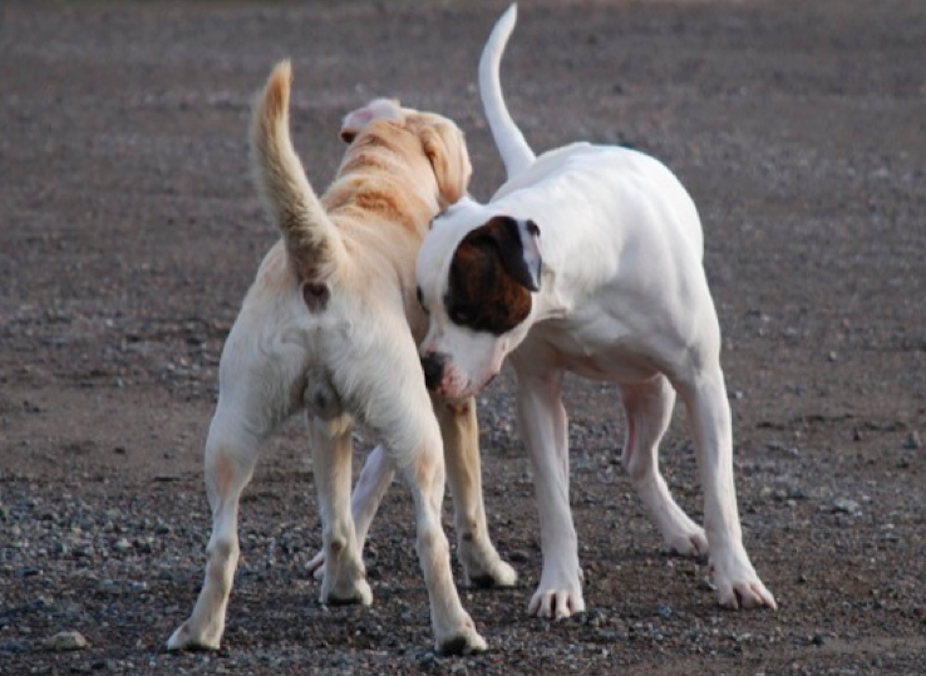As we all know, a firm handshake is important in making a good first impression. It’s a sure sign of physical strength and, rightly or wrongly, we use it make all manner of judgements about character, personality and sincerity.
New research now suggests that we take away much more than this – quite literally – because shaking hands may also be a way that we smell each other. As you may have read elsewhere, an Israeli team published a paper that showed that handshakes transfer aromatic compounds thought to be involved in social assessment – that is, making judgements about someone else by virtue of how they smell.

They analysed the chemical compounds present on clean surgical gloves and those that had been worn during a single handshake with the bare hands of ten volunteers. A range of chemical compounds were transferred, including some involved in animal interactions or already known to occur in human skin secretions.
So handshakes transfer smelly compounds. And how often we smell our hands following a handshake depends on who we greet. By secretly filming 150 participants, the researchers found that both men and women spent more time smelling the hand they used in the handshake when they greeted someone of the same gender. When they greeted a member of the opposite sex, they spent more time smelling their non-shaking hand.
Smell and social interaction
These new results add to accumulating evidence that our sense of smell plays an important part in social interactions. We can detect whether someone is sick or healthy through their body odour, or whether they are fearful, for example. Women place particular value on smell when judging suitability of potential partners, and prefer armpit odour of men who, among other qualities, are more genetically compatible or socially dominant.
In turn, men find women’s armpit odour more attractive when women are close to ovulation and exposure to vulvar scents collected around ovulation increases their testosterone levels, suggesting that scent might prime men for competition over a fertile woman. Interestingly, women respond to fertile odour in just the same way, suggesting they are also sensitive to smells of potential competitors.
So what exactly might we be assessing when we check out hand odour, and what might we use that information for?
Smell is usually thought to be important in sex and attraction, so it was surprising that sniffing of the shaking hand increased the most after greeting someone of the same sex. The researchers suggested that this could be a way to assess the competition (though they admit they did not ask about sexual orientation of the participants).
That would not completely rule out using hands to sniff out potential partners. Reactions to smells can change depending on context, so perhaps people increase focus on the opposite sex in more socially relevant settings, or if they are single and searching for someone special.
But it’s not about the hands
One problem with all this is that it remains unclear whether there is some particular communicatory value in the smell of a hand. So far as we know, there are no special secretory glands that are unique to the hand – the compounds present on hands are likely to be much the same as those that occur on many other parts of the body.

Yet we do use our hands to touch other parts of our body which produce specific and localised odours, including our lips, hair and, of course, more intimate areas. The researchers did not provide evidence that these are the source of some of the transferred smell compounds, but it seems plausible. Indeed, studies aiming to promote handwashing report all kinds of bodily traces, including faecal bacteria, on hands of ordinary people on the street.
This could provide the key to understanding hand-smelling. A simple handshake is a world away from the greeting ceremonies of other mammals. They are unconstrained by the social niceties of observing personal space and partake in abundant close-up sniffing, very often in the ano-genital area.
We simply don’t get to do this until we enter an intimate sexual relationship. But because hands wander, they pick up these more intimate odours and make them accessible in a socially acceptable way. In other words, offering a handshake could just be a polite and modern version of inviting someone to “sniff my butt”.

